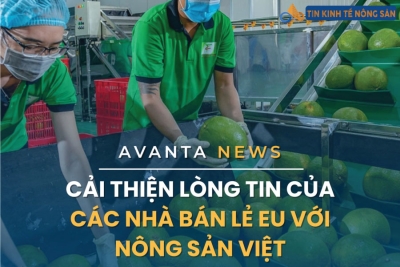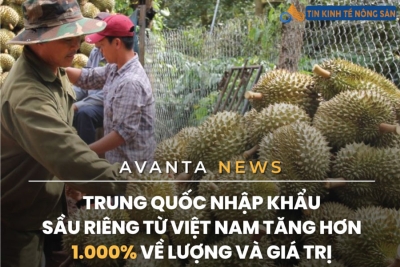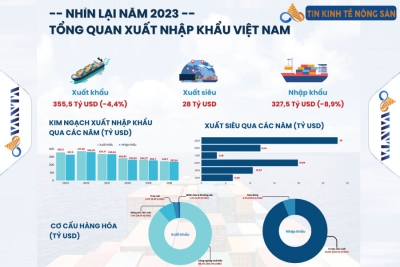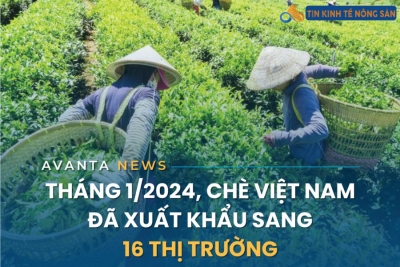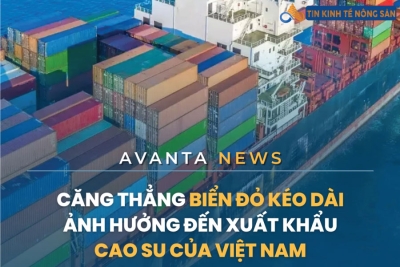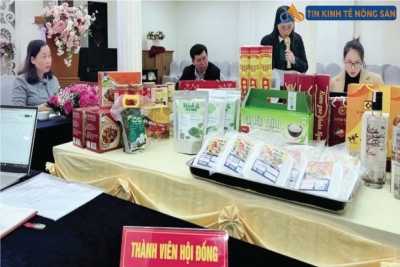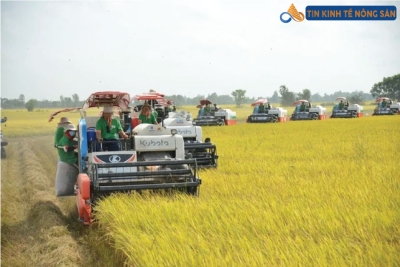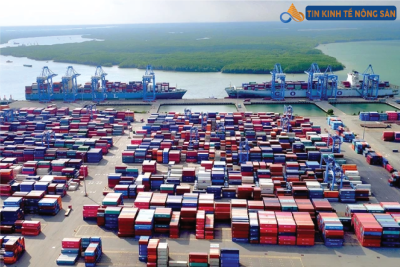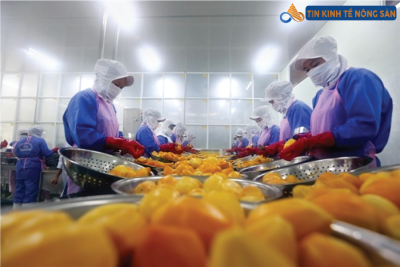Enhancing the Capacity to Implement SPS Regulations
Currently, the key export markets for Vietnamese agricultural products are witnessing a growing trend of implementing dynamic phytosanitary measures (SPS), such as adjusting maximum residue levels (MRL) for plant protection products, antibiotic residues, food contact materials, and microbiological contamination,…
The seafood processing for export at Cafatex Fishery Joint Stock Corporation
Therefore, it is essential to enhance the capacity to enforce SPS regulations for producers, processing facilities, and export enterprises to meet the import requirements accurately, adequately, and in a timely manner.
In 2023, Vietnam's total export turnover of agricultural, forestry, and aquatic products reached USD 53.01 billion. This achievement owes a significant contribution to the functional agencies, including the Vietnam Sanitary and Phytosanitary Notification Authority and Enquiry Point (SPS Vietnam Office), which actively updated SPS information for relevant parties and recommended adaptive solutions.
According to the SPS Vietnam Office, in 2023, the compilation of draft SPS measures notifications from World Trade Organization (WTO) members for key export markets of Vietnamese agricultural, forestry, and aquatic products revealed that Japan had the highest number of notifications with 142 (accounting for 12%), followed by the EU with 121 (10%), the United States with 90 (8%), Taiwan (China) with 39 (3%), and China with 34 (3%). Other markets such as South Korea, Australia, etc., accounted for approximately 2% of the total notifications.
When considering specific areas, WTO members were most concerned about maximum residue levels (MRLs) of plant protection products, with over 600 notifications (accounting for about 55%), followed by antibiotic residues with over 400 notifications (35%). The remaining notifications covered SPS measures related to animal feed, food additives, and food contact materials.
According to Ngo Xuan Nam, Deputy Director of the SPS Vietnam Office, in 2023, the Rapid Alert System for Food and Feed safety of the European Union (RASFF) issued 4,681 alerts for all exporting countries/territories of agricultural products, food, and animal feed to the EU, ensuring food safety and animal health.
For Vietnam's agriculture, forestry, and fisheries, it is worth noting that despite receiving more notifications on Sanitary and Phytosanitary Measures (SPS), the number of alerts has decreased in the past year. Specifically, while some countries had over 280 alerts (accounting for more than 6% of the total alerts), Vietnam only had 67 alerts (accounting for about 1.4%), a decrease of 5 alerts (4%) compared to 2022 (72 alerts). Examining each sector individually, fruits and vegetables accounted for 27 alerts (40%), fisheries for 24 alerts (36%), and other food products for 16 alerts (24%).
Regarding Vietnam's largest export market for agriculture, forestry, and fisheries, China, there have been significant developments in 2023 as Vietnam did not receive any notifications from China regarding the enforcement of Order 249 on "Measures for the Administration of Food Safety Import and Export" by the General Department of Customs of China.
By the end of 2023, the General Department of Customs of China had approved 3,013 codes for agricultural and food products for nearly 3,000 Vietnamese enterprises to import into the Chinese market. Currently, the General Administration of Customs of China has published a list of 128 seafood products and 48 live seafood species from Vietnam allowed for export to China. Another encouraging development is the significant improvement in the congestion of agricultural products at border gates, which used to be a persistent concern for many businesses in 2023.
Mr. Le Thanh Hoa, Director of the SPS Office of Vietnam, stated that in recent years, the increasing number of SPS notifications from various countries demonstrates that the global market is highly focused on quality, food safety and hygiene, as well as environmental and labor issues, green growth, and circular economy. However, the decrease in notifications for Vietnam shows that we have performed better and compiled more with SPS regulations. In practice, producers, processing businesses, and exporters must adhere to SPS regulations in order to access markets, while also reducing time and costs for businesses in export activities. This contributes to increasing export turnover and enhancing the reputation of Vietnamese agricultural products in the international market.
In 2024, the agricultural sector of Vietnam aims to achieve an export turnover of USD 54-55 billion for agriculture, forestry, and fisheries. Agricultural enterprises believe that with the current production and processing capacity of Vietnam, this target is achievable.
The Ministry of Agriculture and Rural Development collaborates with other ministries and agencies to identify target export commodities. Negotiations are underway for the official export of frozen coconut and durian products to the Chinese market.
The Department of Quality, Processing, and Market Development has also issued a document requesting the relevant authorities in China to consider adding some seafood items to the list of products allowed for export to China. These items include salted jellyfish (Scyphozoa), dried sea cucumber (Stichopus horrens), live red crab (Charybdis Feriatus), live grey bamboo shark (Chiloscyllium griseum), and live spiny dogfish (Mustelus manazo).
This will be an opportunity to significantly increase Vietnam's export turnover for agriculture, forestry, and fisheries in 2024. However, the challenge is to be ready to update and comply with SPS regulations from importing countries. In particular, key sectors such as rice, fruits, and seafood need to further improve their production, cultivation, and processing processes to ensure product quality, food safety, and meet global green production criteria.
Source: The People's paper
 VN
VN
